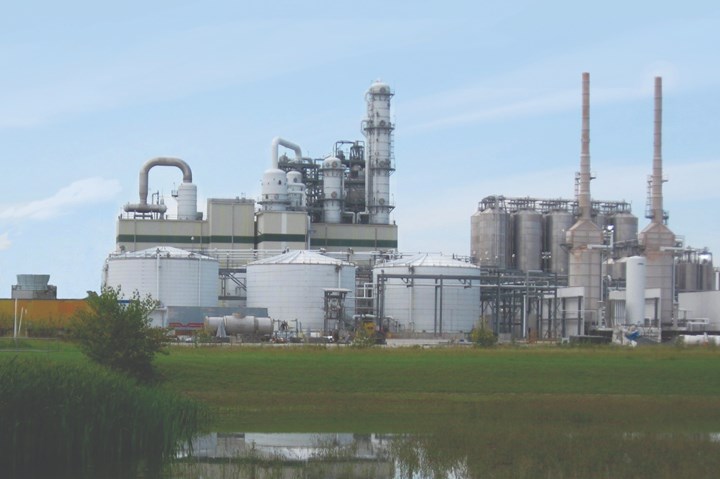NatureWorks to Boost Production of Ingeo PLA
Measures such as lactide monomer purification technology at NatureWorks’ Blair, Nebraska to result in increased availability of entire Ingeo PLA portfolio.
Leading global manufacturer of PLA biomaterials NatureWorks, Minnetonka, Minn., has begun implementation of a slate of manufacturing technology projects, including lactide monomer purification efficiency, that will increase the availability of the full Ingeo PLA portfolio by 10%. Installation is currently underway at NatureWorks’ facility in Blair, Nebraska, the world’s first and largest commercial-scale PLA manufacturing plant. The projects will be completed by the end of 2021.
The company expects the expanded availability to support growth in markets that demand sustainable, low-carbon materials and require the high-performance attributes that Ingeo is uniquely suited to deliver. These include 3D printing and nonwoven hygiene masks as well as compostable coffee capsules, teabags, and coated-paper food serviceware.

Said NatureWorks president and CEO Rich Altice, “The market continues to rapidly evolve due to the COVID-19 pandemic as well as the undiminished demand for sustainable, biobased alternatives to petrochemical-based plastics. For NatureWorks to satisfy this unprecedented demand, this purification technology is one of many additional capital improvements we are actively working on at our facility in Blair. At the same time, we continue to pursue a potential future second manufacturing site outside the U.S. to serve our growing international markets.”
Ingeo PLA is made in a multi-step process starting with the use of annually renewable plants to turn greenhouse gases like carbon dioxide into long-chain sugar molecules. Dextrose, derived from the plant sugar molecules, is fermented into lactic acid that then undergoes a proprietary two-step process to transform it into lactide, the monomer for Ingeo polylactic acid polymer. The additional annually renewable feedstock sourced to supply the new manufacturing projects will become certified by the International Sustainability & Carbon Certification System (ISCC) to the ISCC PLUS standard of best practices in agricultural production by 2025. (NatureWorks was the first biopolymer manufacturer to become certified to the new ISCC PLUS standard in 2012, and currently has more than 60%of its agricultural feedstock certified.)
In 2019, as part of its participation in the New Plastics Economy Global Commitment and commitment to sustainable agriculture, NatureWorks announced an initiative to ensure that by 2020, 100% of the agricultural feedstock used for Ingeo made at their Blair, Nebraska production site would be certified as environmentally and socially sustainable by the ISCC. By 2025, NatureWorks also has committed that 100% of new feedstocks for additional manufacturing capacity will be certified as sustainably and responsibly managed via an independent third-party administered program.
.
Related Content
-
Consistent Shots for Consistent Shots
An integral supplier in the effort to fast-track COVID-19 vaccine deployment, Retractable Technologies turned to Arburg and its PressurePilot technology to help deliver more than 500 million syringes during the pandemic.
-
How to Extrusion Blow Mold PHA/PLA Blends
You need to pay attention to the inherent characteristics of biopolymers PHA/PLA materials when setting process parameters to realize better and more consistent outcomes.
-
Multilayer Solutions to Challenges in Blow Molding with PCR
For extrusion blow molders, challenges of price and availability of postconsumer recycled resins can be addressed with a variety of multilayer technologies, which also offer solutions to issues with color, processability, mechanical properties and chemical migration in PCR materials.







